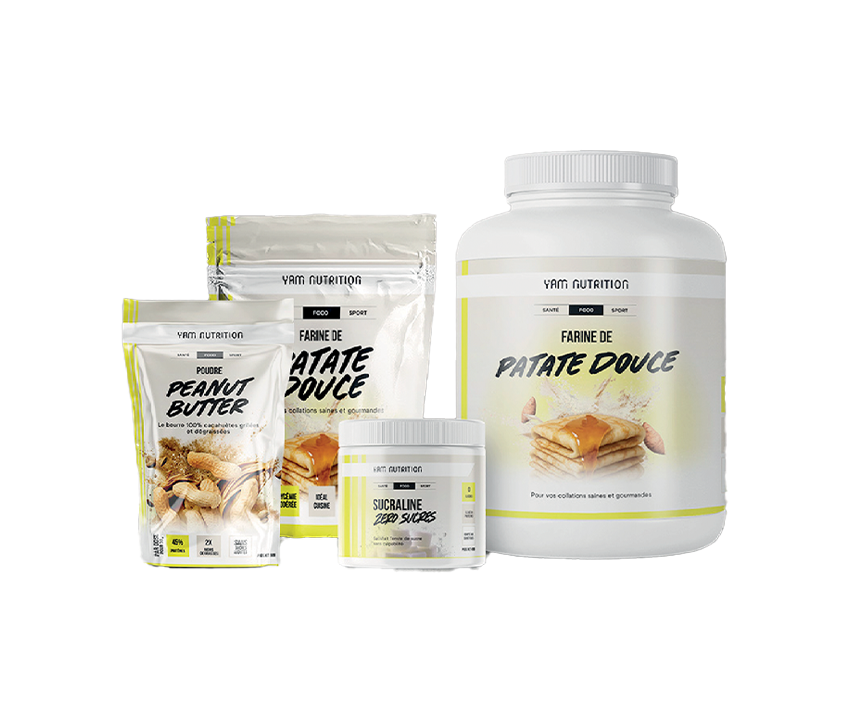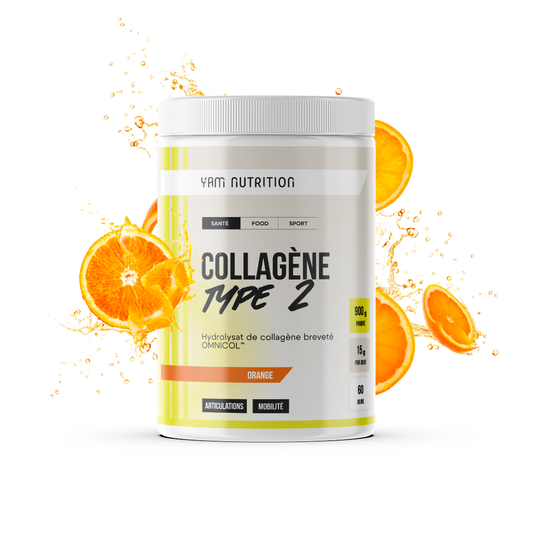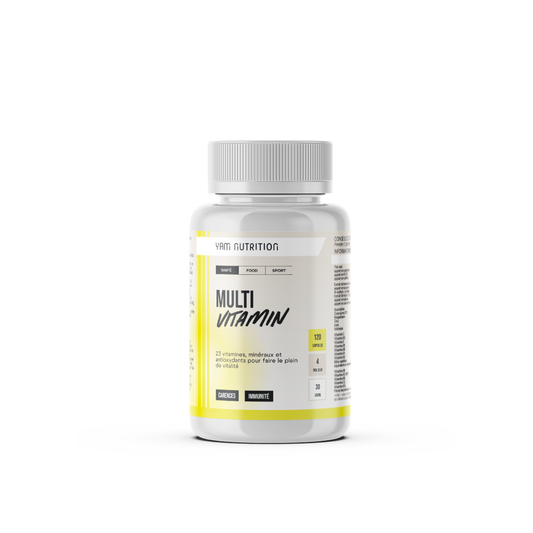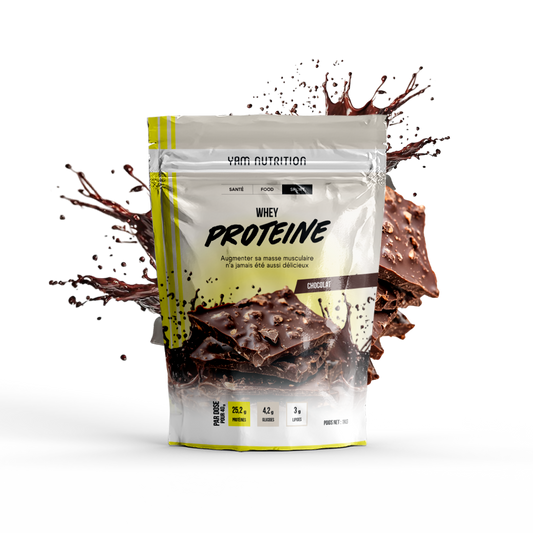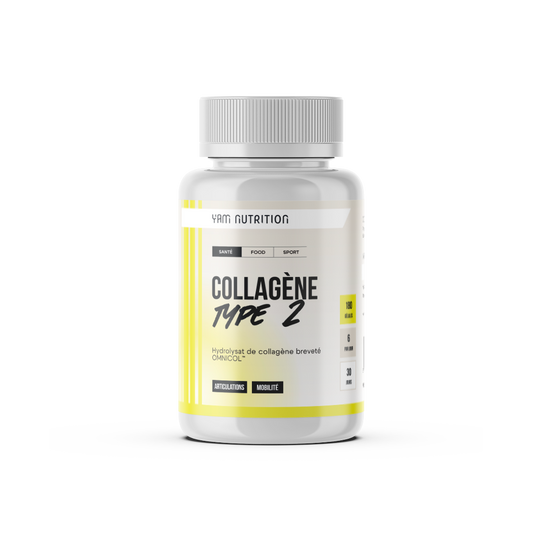Collagen, the structural protein of the human body

Sommaire
- Collagen, a structural protein that is not very involved in muscle growth but is much more useful than you might think...
- Collagen, a tensile-resistant structural protein that strengthens your body's framework
- There are 28 types of collagen but type I makes up 90% of the collagen protein in the human body
It's hard to live in the world of bodybuilding without knowing the names of the proteins most often taken by athletes to gain muscle. Among these proteins, we obviously find " whey " (or lactoserum in French) but also micellar casein or egg white. In the past, we took Milk & Egg , because it was truly an ideal protein blend for muscle growth. It should be added that the nutritional quality of protein supplements has always been a consensus. But today, collagen is a structural protein Who proves to be just as interesting as the others , even if its aminogram is not considered complete. However, it has many other reasons that place it at the level of the top protein food supplements. Currently, this other protein is creating a buzz on many specialized sales sites and blog articles. It is simply collagen. If the collagen is often associated with skin health, it ensures many other essential functions of the body.
OMNICOL™ Patented Collagen Hydrolysate A complex of 23 vitamins, minerals and antioxidants to boost your vitality Building muscle mass has never been so delicious
Collagen Type 2 Powder
Sale price
49,90 €
Multivitamin
Sale price
29,90 €
Whey Protein
Sale price
From 37,90 €
Collagen, a structural protein that is not very involved in muscle growth but is much more useful than you might think...
At first glance, it cannot be said that collagen has an ideal amino acid profile for bodybuilding. Rich in Glycine , It already interests us a little more, but it does have some deficiencies in other amino acids. And so, if you are young and fit, collagen will not be the best protein to take if you want to build muscle. However, it also affects the connective tissue structure and joints. But if you're older, things might be different, despite the relative lack of BCAAs. In reality, collagen has other functions, probably just as essential, if not more so, than stimulating muscle growth. Indeed, collagen is a structural protein for our body framework. It also has the advantage of providing two specific amino acids, hydroxyproline and hydroxylysine which participate in the synthesis of collagen fibers by our body. These two organic acids with amine function are in the majority (with the glycine ) in this protein structure. It is present everywhere, in the tissues of the skin and face, which is why cosmetic creams contain it.
Collagen, a tensile-resistant structural protein that strengthens your body's framework
To give you a more or less accurate comparison, let's say that collagen would act a bit like the cross beams that reinforce a wooden frame. Also think about reinforced concrete; it's a pretty telling metaphor. Still, the collagen is one of the most important proteins in your body in particular, and in mammals in general. Collagens alone – because there are several of them – represent 30% of the proteins found in skin, tendons, bones, joints, blood vessels, muscles and even your teeth. Collagen protein is essential for the development of the skeletal framework, the density of cartilage, joints, tendons and even the proper functioning of your muscles.
In fact, muscle fibers are surrounded by several sheaths made of collagen. Without these sheaths protecting your fibers, you would not be able to contract the muscles in your body. Thus, we differentiate the proteins that participate in the construction of muscle fibers from those that form the solid structure of your body by saying that collagen is a structural protein , unlike other food proteins such as whey, casein, chicken, meat, eggs or fish which contain mostly muscle proteins. In terms of food, hydrolyzed collagen powder can be derived from the carcass of chickens, pigs, beef or fish (marine collagen). The quality of the protein hydrolysis and the different extraction methods will then determine the nutritional quality of the finished product in powder form.
There are 28 types of collagen but type I makes up 90% of the collagen protein in the human body
On a genetic level, we know that our genome refers to 44 genes in order to code the polypeptide chains that will lead to the constitution of the 28 types of collagen, or more precisely, the fibrils of collagen. However, type 1 collagen makes up nearly 90% of the collagen protein in the human body. Present in skin, tendons, and bones, type 1 is often associated with type 3, also present in skin and muscles. Still, a supplement of collagen of superior nutritional quality must first of all be type I, given its very large majority presence in our body.
In this regard, YAM Nutrition offers you Coll-Agene, a collagen hydrolyzed powder with unmatched nutritional quality on the market. Indeed, Coll-Agene features very fine peptides with a molecular weight of only 1000 Daltons, unlike most other products on the market. Currently, it is the best nutritional quality on the market, producing a mixture in water with ease. With a neutral taste, Coll-Agene is also available in two flavors, orange and forest fruits. Coll-Agene is a collagen hydrolyzate, allowing the production of peptides and free amino acids. As you know, hydrolysis is comparable to a pre-digestion of the protein, carried out by enzymes. The resulting collagen hydrolyzate is then quickly assimilated.
YAM Nutrition
Eric MALLET
Spécialiste en Nutrition Sportive
